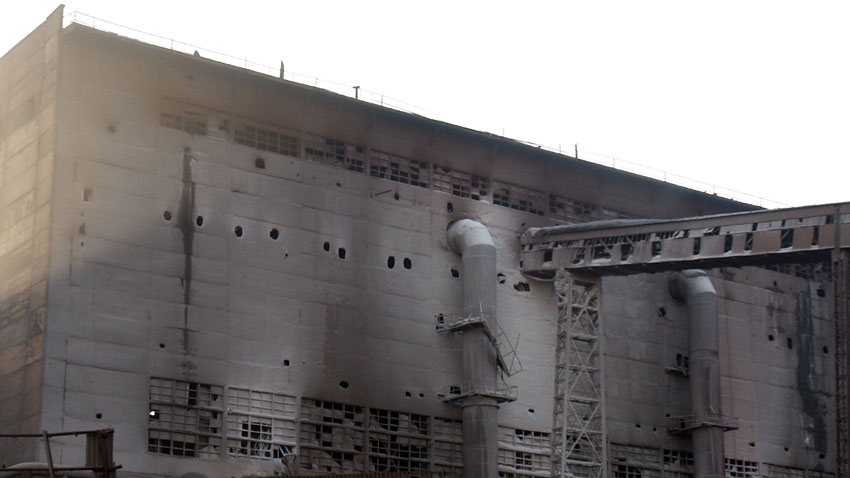In December 1948 during the 5th Congress of the Bulgarian Communist Party the country's first Communist leader Georgi Dimitrov spoke out the famous words: In the next ten to fifteen years Bulgaria must achieve what other nations have achieved for a whole century. His words gave the start of a large-scale industrialization of this country. The authorities started to put the five-year plans of development of the national economy into force and the capital investments were mainly directed towards the heavy industry.
The year 1963 is emblematic for Bulgaria's industrialization. Kremikovtsi metallurgic plant and the oil refinery in Burgas started to function. The Golden Archives of the Bulgarian National Radio keep a sound picture of the official opening of the Burgas refinery in 1963. The speech was delivered by former Prime Minister and First Secretary of the Bulgarian Communist Party's Central Committee Todor Zhivkov.
"Dear builders and fitters of the petrochemical plant, dear workers, engineers, technicians, dear guests,
Our nation has achieved in 1963 another great labor victory. Less than two months have passed since the giant of the country's black metallurgy – the Kremikovtsi factory started functioning. Today, on the other part of our motherland we unveil on the Black Sea coast the first in this country petrochemical plant. What does this oil factory mean to Bulgaria? This facility is the leader of our petrochemical industry. The plant will boost the development of the country's heavy chemical industry, as well as of other industrial sectors due to its modern equipment and large production capacity. This factory will play a vital role for the development of the country's transport, construction and agriculture. The two production facilities of the plant, which have already started functioning, are to process in the next 1 to 2 years some 2 million tons of oil on an annual basis. This would significantly increase the country's wealth and broaden the raw material base used by our processing industry. Thus, we would be able to alleviate Bulgaria's energy balance."

The resolution of the Bulgarian Ministerial Council to build the petrochemical plant near Burgas dates back to 1959. The first sod was turned on November 5, 1960 and the factory started functioning at the end of 1963. The period between 1966 and 1970 is known as the five-year period of chemistry and organic synthesis. New facilities for chemical production were also built. In 1971 the authorities opened a second petrochemical plant near Pleven (Central North Bulgaria).
At the end of the 1990s both petrochemical plants became private properties. In 1999 the oil refinery near Burgas was bought by Russian energy giant Lukoil. Half a century after the beginning of the heavy industry in Bulgaria Lukoil Neftochim Burgas is a modernized and well-developing company which employs a lot of people from the Burgas region. However, the oil refinery near Pleven stopped functioning in 1998. Despite the interest shown by various investors, who intended to restore the production at this site, it never started functioning again ever since that year. The giant of the country's ferrous metallurgy Kremikovtsi had a similar destiny. Its privatization back in 1999 is one of the leading examples of a non-profitable deal with state property after the fall of the totalitarian regime in 1989. Kremikovtsi went into insolvency at the end of 2010 and sold out most of its assets and properties.
English version: Kostadin Atanasov
Bulgaria had no Prague Spring, no Tender Revolution, no Solidarity movement, nor huge dissidents like Havel and Wałęsa. The main reasons are the psychology of the Bulgarian people and the repressions against the intellectual elite..
Reciting his poem An Interview in the Whale's Womb, Pavlov went on to say: „To enter the whale's womb you should prove you've got worth. There is 'worth' control… There I first met Valery Petrov, and say, Boris Hristov met me…”..
“Europe in anything other than the geographical sense is a wholly artificial construct.” Sobering words, especially coming from Margaret Thatcher in her book Statecraft. In the 1980s, the Iron Lady dragged Britain out of the..

+359 2 9336 661
